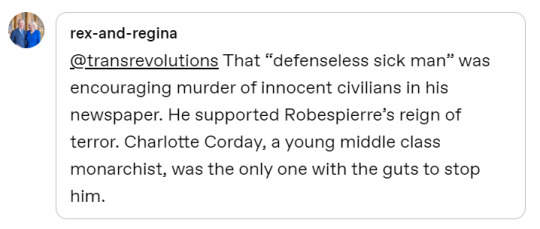#Homeland Security and Public Safety
Text
youtube
#youtube#militarytraining#2024#public safety#Homeland Security#critical infrastructure#crisis management#homeland defense#security camera#unseen#national security#government agency#emergency preparedness#emergency response#natural disaster#news footage#emergency management.#law enforcement#first responders#surveillance footage#disaster footage#B-roll
0 notes
Text
The Advantages of Using VivencyGlobal’s Surveillance Solutions
Vivency Global is a leading provider of surveillance solutions that help organizations protect their assets, people, and operations. With over a decade of experience in designing, implementing, and managing complex security systems, Vivency Global has a proven track record of delivering high-quality solutions that meet the diverse needs of its clients. In this blog post, we will explore some of the advantages of using VivencyGlobal’s surveillance solutions and how they can benefit your business.
Comprehensive coverage
VivencyGlobal’s surveillance solutions offer comprehensive coverage of your premises, both indoors and outdoors. They use advanced technologies such as high-definition cameras, thermal imaging, facial recognition, license plate recognition, and analytics to detect and deter potential threats, identify suspicious behavior, and provide actionable intelligence to your security team. Whether you need to monitor your office building, warehouse, parking lot, or retail store, Vivency Global can design a customized solution that fits your needs and budget.
Real-time monitoring
VivencyGlobal’s surveillance solutions enable real-time monitoring of your premises from any location, using any device with an internet connection. This means you can stay connected to your security system 24/7 and receive alerts and notifications in case of any security breaches, unauthorized access, or other abnormal activities. You can also review live and recorded footage, manage access control, and communicate with your security team or law enforcement agencies using the same platform.
Scalability and flexibility
VivencyGlobal’s surveillance solutions are scalable and flexible, meaning they can adapt to your changing security requirements as your business grows or evolves. Whether you need to add more cameras, upgrade your software, integrate with other systems, or migrate to a cloud-based platform, Vivency Global can provide you with a seamless and cost-effective solution that minimizes disruption and maximizes value.
Expertise and support
VivencyGlobal’s surveillance solutions are backed by a team of experienced security professionals who understand the latest trends, technologies, and regulations in the industry. They can provide you with expert advice, training, and support throughout the lifecycle of your security system, from design to deployment to maintenance. They can also help you optimize your system’s performance, reduce false alarms, and minimize downtime, ensuring that your security system operates at peak efficiency.
Compliance and privacy
VivencyGlobal’s surveillance solutions are designed to comply with the highest standards of privacy and data protection. They use encryption, authentication, and access control mechanisms to secure your data and prevent unauthorized access, disclosure, or modification. They also adhere to local and international regulations such as GDPR, HIPAA, PCI-DSS, and SOX, ensuring that your security system meets the legal and ethical requirements of your industry and jurisdiction.
In conclusion, VivencyGlobal’s surveillance solutions offer many advantages that can help you enhance your security posture, reduce your risk exposure, and improve your operational efficiency. Whether you need to prevent theft, vandalism, or violence, or monitor compliance, productivity, or customer experience, Vivency Global can provide you with a customized solution that meets your needs and exceeds your expectations. To learn more about VivencyGlobal’s surveillance solutions, contact us today.
#Surveillance#Security#Monitoring#CCTV#Privacy#Technology#Data collection#Intelligence#Video analytics#Remote monitoring#Access control#Intrusion detection#Biometrics#Facial recognition#Network security#Smart cameras#Privacy concerns#Threat detection#Cybersecurity#Artificial intelligence (AI)#Machine learning#Sensor networks#Crime prevention#Homeland security#Public safety
0 notes
Text
I decided to retire my Magen David pendants. They are safely wrapped and tucked away...
But my wife got me a very important pendant. It is an eliat stone with a silver lion of Judah on it. I used to only wear it on special occasions, but lately it feels good to hold, and wear. It hangs over my heart. The stone that is only found in our homeland, feeling the strength of the lion burning in my heart.
You have taken my kippot, you have taken my magen David, you have taken away me being able to pray in public you have taken away my security and safety.
But I will not let you take my connection to Israel, I will not let you take the roar of the lion out of my heart.
I was born Jewish with a deep connection to Israel and I will die a Jew with a deep connection to Israel.
עם ישראל חי
הברכיים שלנו לא ירעדו בשבילך
#jumblr#antisemitism#jewish#israel#i stand with israel#am yisrael chai#הברכיים שלנו לא ירעדו בשבילך#שהצדק ינצח
93 notes
·
View notes
Text

The Rift - Chapter Four
Pairing: Marcus Moreno x Marcus Acacius x Marcus Pike x f!Reader
Rating: Chapter is T, overall fic is E (18+ only, explicit smut)
Word Count: 2.9k
Warnings: ridiculous dialogue, pining between so many characters, unrealistic heroics technology used as plot contrivances
Summary: After the Heroics manage to close the Rift, trapping Marcus Acacius on the wrong side of time and space, the group enlists Marcus Moreno for help. The leader of the Heroics is still dealing with the fallout of the Rift, but he's fascinated by the unlikely visitor to their time... almost as much as he is interested in the FBI Agent who called him.
A/N: LOOK AT OUR LITTLE GUYS GO!!!! They're settling in nicely to their routine of talking late into the night ;)
Masterlist | Chapter Three | Next chapter>>
(Moreno)
Closing the Rift hadn’t solved all of Marcus’s problems, but then again, he should never have expected it to. Sure, the White House was much happier now that a giant crack in space was no longer glowing ominously just a few steps from the White House lawn, but the general public seemed to take any excuse to take to the streets. When the Rift had appeared, groups protested Heroics’ control of the area, despite Marcus’s repeated comments about being concerned with public safety and the general wellbeing of space and time in general. Now, predictably, people are angry that the Rift had been closed with little-to-no exploration of the phenomenon. And he gets it, really, he does. But his first priority had to be the safety of the city, not to mention the department’s accountability to the US Government. The powers that be had said “Shut the portal,” and Marcus wasn’t in any place to disobey direct orders.
He pinches the bridge of his nose again, pushing up the thick frames of his glasses as he does so, and glances at the muted plasma screen in the corner of his office. The news has been showing footage of the protests for hours now, and Marcus watches glumly as the camera zooms in on a hastily-written posterboard that reads “I WANTED TO SEE WHAT WAS IN THE LIBRARY OF ALEXANDRIA.”
His intercom buzzes, and Marcus angrily presses the ‘off’ button on the TV remote before answering, “Yes?” The metal stapler on his desk wobbles back and forth slightly, and the Heroic has to shake his head rapidly back and forth to force his powers back down to a low simmer.
“Someone from the FBI here to see you?”
Marcus’s stapler suddenly implodes on itself. Shit.
“Listen, will you National Security guys give it a rest?” he snaps irritably as the door opens. “We’ve got the situation under control. If I have any updates, I’ll contact you, but at the moment, consider no news is good news.”
The Agent looks surprised at the outburst. “I’m not from NSB,” he says slowly.
“Which department is coming to yell at me, now?” Marcus deadpans.
“My name is Special Agent Pike, I’m with Art Crimes.”
“...Art Crimes?”
“And actually, I really need your help.”

“Oh shit. Oh shit. Oh, shit.” The Heroic paces back and forth in front of his desk taking in everything Agent Pike had just told him. This is what happens when you’re pulled in a million different directions. His own research department had been begging for access, the CIA was screaming at him every day about Homeland Security, and the fucking President called him personally to ask what he was doing to make the Rift go away.
This is how mistakes happen. Things get missed, people get hurt. He sinks, with defeat, into one of the chairs in front of his desk.
“This man, you said he’s at your apartment right now?”
“Not mine, no. My, uh… my friend’s. Actually, more of a consultant. Yeah, a consultant. She’s a curator at the National Gallery of Art,” Pike says, as if this explains everything.
“Why involve this other person? This… museum employee?”
“I mean, she’s an expert,” the Agent says vehemently. “She’s a classical Archaeologist, was helping us with some smuggled artifacts relating to the Rift… Anyway, she’s brilliant, and I knew she’d be able to help, and sure enough, she’s speaking Latin like it’s a normal, everyday thing to do and teaching this guy English.”
“How long did you say this man has been in your custody?” Marcus asks.
“About eight hours.”
Marcus studies the Agent. He feels like being a public servant has beaten him down over the years, turning the once-optimistic superhero who wanted to save the world into the jaded, tired old man he is now. Agent Pike’s demeanor seems to indicate that he’d somehow escaped the gradual decline into pessimism. No, this was a man who loved his job wholeheartedly, and it showed. The fire in his eyes was galvanizing… and beautiful.
The Heroic stands abruptly. “I want to see him.”

(Pike)
Marcus hesitantly taps on your door, having no idea what to expect on the other side.
Even still, when the tall, broad man who was formerly dressed in full Roman regalia and is now wearing a faded Bryn Mawr hoodie and pajama pants and holding a box of Cinnamon Toast Crunch answers the door, Marcus is struck dumb.
“Hello!” the man announces seriously.
“Hey! Sorry. We’ve been practicing.” your face pops up near his elbow, giving Marcus a little wave.
“How are you today! I am fine, how are you!” the man at the door bellows loudly.
“What the…” Marcus Moreno mutters under his breath.
“My. Name. Is. Marcus. Acacius,” Marcus Acacius says haltingly.
“That��s his last name!” you pipe up with a giddy smile. “He is a general in the Emperor’s army.”
“See-ree-all,” Marcus Acacius says, holding up the box before grabbing another handful of his snack.
“That’s a tough word,” you shrug.
“You’re feeding a Roman general processed sugar from a box,” Marcus Pike says flatly.
“I’m sorry, I’m single-handedly teaching a Roman man how to speak modern English and you are criticizing my choice of food?”
“His name is Marcus?” the Hero asks skeptically.
“Yep,” you chirp brightly. “Marcus, meet Marcus. And you’ve already met Marcus. Hi Marcus, I don’t believe we’ve been introduced.” You hold out your hand for the newcomer to shake.
“This is chaos,” Marcus says as he takes your hand.
The General also offers his hand. “Hello, how are you today! I am fine, how are you!”
“I’ve barely been gone two hours,” Marcus says with a disbelieving laugh. “And he’s speaking full sentences.”
“Tee-vee is magic,” the General tells him. “I also come here by magic.”
“Pretty much,” the Agent agrees with a chuckle. “You okay?” he asks, looking at you.
“You showed up in the middle of the night with a man who happens to come from exactly the time of my expertise and area of study,” you say, leveling a finger at him. “I’m doing… amazing! Honestly, this is the most exciting day of my life.” Sobering, you glance between your new pupil and the leader of the Heroics. “What about him? Will he be able to return home?”
“Home,” Marcus Acacius nods enthusiastically. “To Roma.”
Marcus Pike looks at the hero with discerning eyes. He can see the lines on his face, the worry etched on his forehead. A man who’s in over his head, struggling to stay afloat as the pressure threatens to pull him under. He knows that feeling well.
The man shakes his head sadly, looking pained.
“No?” the Roman asks. “No Roma?”
“I… I don’t know,” the hero admits.
“Nescio,” you translate, and the man looks troubled.
The Hero glances over at Marcus, and something in his return gaze seems to spur him into action. “No, hang on,” Moreno adds. “The Heroics caused this mess. The Heroics will fix it. I’ll see to it.”
“How will I get in touch with you?” Marcus asks as he turns for the door. Moreno pauses, and looks back. “Let me give you my direct line, okay?”
Wordlessly, Marcus hands him his phone and watches as the man taps in his number and hands it back. He presses the ‘Call’ button, and the Hero’s own phone dings in his pocket before Marcus cancels the call.
“Now you’ve got mine, too.”
The Heroic flushes slightly, and nods. “I’ll be in touch. Marcus. And uh, Marcus.” He nods perfunctorily at the Roman general, and leaves.
“That was weird,” you laugh, breaking the silence that had fallen over the apartment.
“What was?”
“It was like he had a crush on you or something,” you tell Marcus.
He snorts. “I find that hard to believe.”
“Why? You’ve a good-looking man.”
Marcus tries to ignore the way his heart aches at your words. “Sure,” he jokes.
“What? I’m serious.”
“He’s the leader of the Heroics. He could do better.” It’s meant to be another joke, but it comes out slightly more maudlin than intended.
“That’s your protest? That he could do better? Hang on–Marcus, are you gay?”
“No!” The protest is far too loud. “I mean, I’ve dabbled. It’s not… y’know.”
“You should go for it,” you say, shrugging your shoulders in a way that’s meant to be nonchalant, but Marcus can see the strain behind your eyes with the effort of playing it cool.
“That’s not who I’m interested in,” he says quietly. He forces himself to look directly into your eyes as he says this, despite the pounding in his heart.
“Oh,” you whisper, your voice shaking slightly as you flash him a cautious, shy smile.
“Quid est?”
The question cuts through the moment, and Marcus turns to see the General holding a souvenir snow globe of the Parthenon and looking very confused.
“Your turn,” you tell Marcus with a laugh.

(Moreno)
It takes one week for the leader of the Heroics to call.
A few metal pens clink together in the sleek black canister on Marcus’s desk as he taps on the words ‘Agent Pike’ and puts the phone to his ear.
“This is Pike,” comes the response at the other end of the call.
“Hi–” Marcus clears his throat. “Hi. It’s Marcus. Moreno.”
“I know.” He can hear the chuckle in the man’s voice. “I hope you’ve got good news.”
“Yes, and no,” Marcus admits.
“Can I get the ‘yes’ first?” Agent Pike jokes.
“My team thinks they can recreate the energy blast that created the Rift without causing a massive explosion or a uh… black hole that swallows the entire planet.”
“That sounds like a positive,” the Agent says optimistically.
“The bad news is that they don’t know how long it’s going to take to invent that kind of technology from scratch. But I’ve explained the situation and the urgency behind it and I’ve got people working ‘round the clock to recreate the Rift and get Marcus Acacius back home.”
“That’s great,” the other man says cheerfully. In the background, he hears your voice cheering as well. “Sorry, I put it on speaker,” Marcus laughs.
“How is the General, by the way?” he asks.
“Oh, he’s fine. Learning more about modern life, has quite a few more words under his belt. We took him shopping for some new clothes the other day, that was… fun.”
Marcus snorts, trying to imagine a person from two thousand years in the past attempting to navigate a modern mall.
“And the two of you… you’re handling it? Keeping it quiet?”
“Oh, yeah. Haven’t told anyone else, obviously. We’ve been taking turns going to work, taking a few vacation days here and there, not raising any suspicions about our sudden odd behavior.”
“I appreciate it,” Marcus tells him sincerely. “Oh hey–I almost forgot. I have something for you. Bit of Heroics tech that might help you guys out.”
“Oh yeah?”
“Mmhmm. Can I stop by your colleague’s apartment later today to deliver it?”
“Yeah, of course,” the Agent answers. “We’ll see you then.”

(You)
This might be the best week of your life.
Hiding a fugitive Roman General in your apartment probably should be stressing you out, but instead you’re having the time of your life.
The situation, by default, has forced you into close proximity with Special Agent Pike, a man you’ve longed to know as more than just an occasional colleague from the moment you met him. At a minimum, he’s at your place every evening as soon as he can get away from work without people asking questions, but there have been several days that the both of you had called off and spent the day together with your temporary houseguest.
And then there’s Marcus Acacius.
A brilliant man, he’s done his best to adjust to his new surroundings. He certainly cut an intimidating figure dressed in full regalia on your doorstep at three in the morning, but even in his new wardrobe, he still manages to look just as commanding. He almost looks ‘normal’ standing in your kitchen, wearing khakis and a button-up and filling a glass of water from the tap, but there’s always a hint of otherworldliness about him that no amount of modern clothing can camouflage.
His eyes are sharp and astute, and his gaze always seems to make the heat rise to your cheeks. His presence seems to fluster Marcus as well; you notice him trip over his words on occasion, and you swear you saw the man blush when he had to help button the General’s new shirt after your little shopping trip.
If anything, having the two of them in your home feels… cozy.
You almost wish it didn’t have to come to an end.
A knock at the door startles you out of your reverie.
“Take bets, is that the pizzas or the Heroic?” Marcus chuckles from his spot on the couch.
“It’s the pizza,” you call out when you open the door to the intoxicating smell of cheese, bread, and garlic. As you’re paying the deliverer, however, the stairwell door opens and Marcus Moreno walks hesitantly toward you.
“Is this a bad time?” he asks. “You guys look like you’re about to have dinner.”
“Of course not! We thought maybe you’d like to stay and have some, so we got extra.”
“I wouldn’t want to intrude…” he begins.
Hearing the exchange, Pike joins you at the door and beckons the man in with a little jerk of his head. “Don’t be silly. Come have dinner with us.”
Marcus Moreno hesitates for just a moment longer, and then shrugs. “Okay.”
After spending most of the week together, you, Marcus, and Marcus have settled into a dinner routine. You line up and open the pizza boxes as the Roman grabs a stack of plates from the cabinet and Marcus fills four glasses with ice and water and carries them to the table.
“Hello, how are you?” Marcus Acacius asks the Heroic politely.
“Hey,” Moreno grins. “You look like you’re settling in.”
“I am very well,” the man answers. “Pizza is a very good food.”
The Hero laughs. “You’re right about that.”
The four of you eat dinner in companionable silence. As usual, the General eats far more than anyone else, finishing off almost an entire pizza by himself. You can’t help but wonder about his life in Rome–what he does, what he eats, where he lives. You’ve tried to ask, but the language barrier forces your conversations to be short and simple. You wish you could talk to him, really talk. He must have some incredibly interesting things to say…
After dinner, you pour four glasses of wine. The Roman grins widely at you, flashing his teeth. “Vino, excellent,” and you smile back, ducking your head a little and subconsciously glancing over at Pike. You aren’t sure what you’re worried about–jealousy, maybe?–but the Agent nods fondly and raises his glass in a silent toast.
“Let me show you what I brought,” the Heroic announces as the four of you sit in the living room. He reaches into his pocket and pulls out a couple of devices that are slightly larger and thicker than cell phones, but not by much.
“We actually developed these to speak to aliens back when we were dealing with that situation with the Throqans several years ago. They were indispensable in helping us communicate and deescalate what could have turned into some kind of intergalactic war,” Marcus Moreno explains, switching one of the devices on. “It wasn’t until after that we realized we could program it to translate human languages. I had someone add a new function just for you. Here, say something.” He holds the device up to Marcus Pike.
“Uh… this is me, saying something.”
Immediately, the device emits a string of perfect Latin. The General perks up, cocking his head to the side and examining the device intently.
“These will translate anything you say in English into Latin, or vice versa,” Moreno says, and the words are again repeated back in Latin. “You want to try?” he asks, holding the device out to Marcus Acacius, who takes it carefully in one large hand and says something into it.
“So many times every day I say to myself, ‘This thing must be magic,’ and I find I must say it once again.”
You let out a little shriek of delight. Marcus Pike laughs joyfully and claps the Heroic on the shoulder.
“This is incredible! Marcus, thank you,” he says, his hand still on the man’s shoulder. You don’t miss how the very tips of the Hero’s ears turn pink.
“It’s the least I could do. They all come with earpieces, too, so you can each automatically hear translations of everything that’s said.”
The Roman speaks into the translator again. “Do you also bring news of when I might return home?”
Marcus Moreno bites his lip. “I wish I could say I did, but I don’t. The technology is still only theoretical. We’ve been running tests, but so far, nothing has been successful.”
Acacius listens to the translation, nodding slowly and looking somewhat disappointed. Suddenly, though, he brightens, and speaks again.
“Ah well, if there are more pizza dinners in my future, then so be it.”

92 notes
·
View notes
Text
At the 2023 Defcon hacker conference in Las Vegas, prominent AI tech companies partnered with algorithmic integrity and transparency groups to sic thousands of attendees on generative AI platforms and find weaknesses in these critical systems. This “red-teaming” exercise, which also had support from the US government, took a step in opening these increasingly influential yet opaque systems to scrutiny. Now, the ethical AI and algorithmic assessment nonprofit Humane Intelligence is taking this model one step further. On Wednesday, the group announced a call for participation with the US National Institute of Standards and Technology, inviting any US resident to participate in the qualifying round of a nationwide red-teaming effort to evaluate AI office productivity software.
The qualifier will take place online and is open to both developers and anyone in the general public as part of NIST's AI challenges, known as Assessing Risks and Impacts of AI, or ARIA. Participants who pass through the qualifying round will take part in an in-person red-teaming event at the end of October at the Conference on Applied Machine Learning in Information Security (CAMLIS) in Virginia. The goal is to expand capabilities for conducting rigorous testing of the security, resilience, and ethics of generative AI technologies.
“The average person utilizing one of these models doesn’t really have the ability to determine whether or not the model is fit for purpose,” says Theo Skeadas, chief of staff at Humane Intelligence. “So we want to democratize the ability to conduct evaluations and make sure everyone using these models can assess for themselves whether or not the model is meeting their needs.”
The final event at CAMLIS will split the participants into a red team trying to attack the AI systems and a blue team working on defense. Participants will use the AI 600-1 profile, part of NIST's AI risk management framework, as a rubric for measuring whether the red team is able to produce outcomes that violate the systems' expected behavior.
“NIST's ARIA is drawing on structured user feedback to understand real-world applications of AI models,” says Humane Intelligence founder Rumman Chowdhury, who is also a contractor in NIST's Office of Emerging Technologies and a member of the US Department of Homeland Security AI safety and security board. “The ARIA team is mostly experts on sociotechnical test and evaluation, and [is] using that background as a way of evolving the field toward rigorous scientific evaluation of generative AI.”
Chowdhury and Skeadas say the NIST partnership is just one of a series of AI red team collaborations that Humane Intelligence will announce in the coming weeks with US government agencies, international governments, and NGOs. The effort aims to make it much more common for the companies and organizations that develop what are now black-box algorithms to offer transparency and accountability through mechanisms like “bias bounty challenges,” where individuals can be rewarded for finding problems and inequities in AI models.
“The community should be broader than programmers,” Skeadas says. “Policymakers, journalists, civil society, and nontechnical people should all be involved in the process of testing and evaluating of these systems. And we need to make sure that less represented groups like individuals who speak minority languages or are from nonmajority cultures and perspectives are able to participate in this process.”
79 notes
·
View notes
Text
If, as Isaac West observes, use of the public bathroom is “one of the most, if not the most, quotidian practices of citizenship,” then this chapter argues that surveillance criminalizing public bathroom use is one element of a larger effort to secure citizenship and spatial belonging through the apprehension of physical difference. [...]
Writing about the concept of civilization in the late nineteenth-century United States, Gail Bederman describes it as an “explicitly racial concept” that “denoted a precise stage in human racial evolution”: one that had evolved past primitive or barbaric characteristics. Drawing on Darwinism, this logic rationalized white supremacy through claims that people of color simply had not developed in the same ways or at the same rate as white people, situating civilization itself as a racial characteristic and producing and solidifying distinct racial categories. Bederman notes that gender was crucial in distinguishing civilized societies from the less advanced, with the former identified in part by clear binary gender divisions. [...] Moreover, in the era of formal Jim Crow, while bathrooms marked for white people were typically separated into men’s and women’s spaces, those labeled “colored” were often unmarked by gender at all, a practice that aligns with civilizational discourse. [...]
Yet citizenship status and gender status cannot be pulled apart [...]: just as the previous two chapters of this book traced specific aspects of the Department of Homeland Security that produce and rely on a gendered citizenship, we might consider how campaigns for neighborhood safety and family values regularly invoke a kind of good citizenship that is determined in part through gender attributes. [...]
We need only consider the emphasis on birth certificates to understand the extent to which anxieties about citizenship undergird these bathroom scenes, since those documents mark not only state-approved sex designation, but also legal citizen status. In the most formal sense, birth certificates purportedly confirm citizenship and thus one’s legal belonging to the nation-state. At the same time, they can serve as evidence of citizenship in a more informal or cultural sense: if producing appropriate paperwork is one way of complying with state regulations and requests, then doing so performs good citizenship. [...]
Discourses of bathroom contagion merge fears of “real germs” with “the fear of the other”; hence, public toilets provoke more anxiety than other germ-riddled public objects like computer terminals and doorknobs. Concerns about bathroom cleanliness are as much about bodily interactions and the difficulty of regulating public space as they are about actual dirt or waste. The racial integration of some U.S. workplaces during World War II, for example, prompted tremendous white anxiety about shared bathrooms, even as Black people had long cleaned toilets and beds, prepared food, and cared for children as part of their domestic work in white households. But this “private service work reinforced racialized gender hierarchies in ways that public intimacy undermined them.”
— Toby Beauchamp (2019), Going Stealth: Transgender Politics and US Surveillance Practices, pp. 81 - 101
In his book, Beauchamp argues that anti-trans bathroom bills should be understood as a form of state surveillance that is inextricable from anti-immigration and border security practices: these bills deputize members of the public to conduct bodily assessments of other people to determine whether they meet the criteria of a 'good citizen,' giving them the power to report 'fraudsters' to the authorities if a transgender person is found inhabiting a public bathroom. The criteria by which these assessments are conducted are explicitly white supremacist ones; not only because the imagined body of the 'good citizen' is one that reflects the ideals of white, bourgeois, cissexual bodies* (as clearly demarcated, binary gender roles is a sign of advanced white civilization, and perversion of these demarcations is a perversion of white civil life), but also because one of the primary forms of evidence that you belong in a gender-segregated public space (such as a bathroom) is a birth certificate, one issued by the state - as he says: "if producing appropriate paperwork is one way of complying with state regulations and requests, then doing so performs good citizenship." (p 93). Beauchamp criticizes the framing that trans people are treated like "second class citizens," as it accepts the white racial imaginary of (white) trans people being unfairly denied the benefits of full white citizenship; we should therefore understand gender segregated spaces not as a "remix" of "old" "historic" forms of racial segregation, but as a contemporary enforcement mechanism of it. Binaohan emphasizes this in their 2014 book Decolonizing Trans/Gender 101, arguing that non-white trans people are always "in public," denied any sort of private realm; they are always visible and marked as potential threats to white citizenship. (p. 39)
This is likewise reflected in Jenny Evang's 2022 work Is Gender Ideology Western Colonialism?, where she argues that anti-trans discourse situates the presumed natural state of 'sex' as being corrupted by an overly decadent form of Western cultural advancement, which is both degenerating the Western world and 'duping' the Global South into forsaking their relationship with nature, an argument that "[frames] “non-Western societies” as “more traditional” when it comes to gender, sexuality, and the family, since “gender ideology” has not yet gone as far there as in the West. Thus their argument relies on essentializing the very same conceptualization of “cultural difference” that structures femonationalist arguments in the first place, namely, that racialized, imagined elsewheres are stuck in a more traditional gender pattern, unable to keep up with the rampant development of the West." (p. 370). Locating the origin of transgenderism in the West reproduces notions of civilizational development, where the West is secure in its supreme cultural position but has merely gone "too far," "in the wrong direction," creating the circumstances of its own downfall - a downfall which is attributed both to mass immigration (particularly immigration of Muslims) and Marxism. (p. 372)
Fears of 'gender ideology' engulfing the Western world are inextricable from concerns about the maintenance of white social hygiene, as 'gender ideology' has been called "Ebola from Brussels" (p. 371), linking the corruption of binary, hierarchical, cissexual gender to a disease afflicting the body-politic of the white nation-state. The last paragraph of the quoted passage above from Beauchamp further demonstrates the fundamental interconnectedness between race, gender, and hygiene: The racial integration of some U.S. workplaces during World War II, for example, prompted tremendous white anxiety about shared bathrooms, even as Black people had long cleaned toilets and beds, prepared food, and cared for children as part of their domestic work in white households. But this private service work reinforced racialized gender hierarchies in ways that public intimacy undermined them." (p. 101) Discourses regarding public hygiene are civilizational discourses, as a clean world is a civilized world, and a civilized world can only be a white world.
*Beauchamp explicitly brings up that one of the 'problems' of using biometric data to scan the public for potential terrorists or 'fraudulent citizens' is the white inability to tell the difference between people belonging to different racial groups, i.e., the idea that all non-white people look too much alike and therefore must undergo even more intense scrutiny (p. 95).
96 notes
·
View notes
Text
Rachel Leingang at The Guardian:
To hear Donald Trump tell it, America’s cities are in dire shape and in need of a federal intervention.
“We’re going to rebuild our cities into beacons of hope, safety and beauty – better than they have ever been before,” he said during a recent speech to the National Rifle Association in what has become a common refrain on the campaign trail. “We will take over the horribly run capital of our nation, Washington DC.”
Trump has for years railed against cities, particularly those run by Democratic officials, as hotbeds for crime and moral decay. He called Atlanta a “record setting Murder and Violent Crime War Zone” last year, a similar claim he makes frequently about various cities.
His allies have an idea of how to capitalize on that agenda and make cities in Trump’s image, detailed in the conservative Project 2025: unleash new police forces on cities like Washington DC, withhold federal disaster and emergency grants unless they follow immigration policies like detaining undocumented immigrants and share sensitive data with the federal government for immigration enforcement purposes.
Project 2025’s Mandate for Leadership: The Conservative Promise, an extensive document breaking down each part of the federal government and recommending changes to be made to advance rightwing policy, was created by the Heritage Foundation, with dozens of conservative organizations and prominent names contributing chapters based on their backgrounds.
This part of the project is another Republican attempt at a crackdown on so-called “sanctuary” cities, places around the country that don’t cooperate with the federal government on enforcing harsh immigration policies.
[...]
The threat of withholding federal funds
Republicans, cheered on by Trump, have worked to make immigration a key issue in cities across the country by busing migrants from the US-Mexico border inland, to places run by Democrats like New York, DC and Chicago, overwhelming the social safety net in these cities.
The idea of using federal funds granted by the Federal Emergency Management Agency (Fema) to force immigration changes are included in a chapter about the Department of Homeland Security, written by Ken Cuccinelli, Trump’s former deputy secretary of homeland security.
The chapter’s initial recommendation is to dismantle DHS entirely, create a border-focused agency comprised of other immigration-related organizations and farm out the rest of its components to existing agencies (or privatize them, in the case of the Transportation Security Administration).
It’s not directly clear whether the aim is to use all Fema funds – including those that help cities and states in the immediate aftermath of an emergency like a tornado or flood – or large grant programs for things like emergency preparedness. One line in the chapter says “post-disaster or nonhumanitarian funding” could be exempt from the immigration policy requirements. The chapter also suggests that cities and states should take on more of the burden of financially responding to disasters.
[...]
One of the conditions Project 2025 suggests is requiring states or localities to share information with the federal government for law and immigration enforcement, and specifies that this would include both department of motor vehicle and voter registration databases.
This is of particular interest in many cities because 19 states and Washington DC allow undocumented people to get drivers licenses, the Niskanen Center, a thinktank that delved into the project’s immigration aims, points out. These licenses help with public safety by decreasing the potential for hit-and-runs and increasing work hours, among other benefits, the center writes.
If a city or state is forced to choose between issuing licenses and then sharing this information for use by immigration authorities, or accessing emergency funds for their whole population in a crisis, it’ll be tough for them to deny Fema money, said Cecilia Esterline, an immigration research analyst at the Niskanen Center.
Donald Trump’s war on urban cities is part of the wretched far-right Project 2025 plan, including crackdowns on sanctuary cities.
See Also:
The Guardian: What is Project 2025 and what does it have to do with a second Trump term?
#Project 2025#Donald Trump#Immigration#Sanctuary Cities#Mandate For Leadership: The Conservative Promise#FEMA#TSA#Disaster Relief Funding#Undocumented Immigrants
74 notes
·
View notes
Text

@rex-and-regina
1) marat did not encourage "murder of innocent civilians" in l'ami du peuple. while he did sometimes use violent rhetoric (like in the "five hundred heads" quote that people love to throw around with no context), that was pretty much the norm for political journals at the time. they were sensational and emotional and dramatic and hyperbolic. that was pretty much the stylistic standard. if you compare marat's paper with, say, hebert's or even desmoulins's, you'll find he's actually pretty academic and straightforward for the era.
2) if you try to counter my first point with "but the september massacres", you need to know that marat was not directly responsible for those either. the narrative that he caused it stems from the fact that he put out an issue of his paper a little while before the massacres that said some stuff about taking up arms to defend the homeland from conspirators and traitors, etc. etc. except, y'know, a bunch of people were saying stuff like that in their papers (see above). it's true that he didn't explicitly condemn the massacres, but nobody in the government really wanted to talk about it because of how messy of a situation it was. someone else even said something like "we will draw the curtain over this event and leave its judgement to posterity".
3) robespierre.... did not cause the "reign of terror". in fact they did not even call it the reign of terror at the time (historians came up with that later). actually, if we want to get pedantic, the term terreur had a very different connotation in the 18th century than it does now, but I digress. robespierre was the subject of a massive smear campaign when his coworkers realized they couldn't make him shut up about various crimes that they were involved in and killed him to keep him from airing out their dirty laundry. they also killed a bunch of his political allies because they couldn't have them exonerating him, could they? look it up it's actually wild. so they blamed him for all the issues that the government had, even the ones he was trying to fix (he opposed the shitshow in lyons and nantes, cautioned against needless bloodshed, abhorred the practice of treating executions as a spectacle). also he didn't actually have nearly as much power as people seem to think now. he was a member of the national convention (the french republic's elected legislative body), and a member of the committee of public safety (a council elected from members of the convention to deal with the escalating war situation and some other stuff). he was not the leader of the CSP (which did not have a leader) or the convention (which had a presidency that was mostly ceremonial and worked on a rotating basis). he also never sentenced anyone to death because it was the tribunals that did that, not the convention or CSP.
4) the time period that is generally considered the "reign of terror" (as flawed a concept as that is) is usually placed after the assassination of marat. because a big reason for the paranoia that led to the escalation of security measures was the fact that marat was killed. marat was seen as kind of unkillable by the people of paris (won his own political show trial, etc.) so if you could kill marat, you could kill anyone. so it's kind of hard to say what marat would've supported or not supported after he died, especially since his death itself heavily influenced the next stage of the revolution.
5) charlotte corday wasn't even a monarchist. she was aligned with the girondins, who were moderate republicans in favor of the free market. she didn't like marat because marat was calling the girondins corrupt in his newspaper after a prominent girondin official turned traitor and deserted to the austrians (whom france was at war with). not entirely sure what she thought she would accomplish with this, because a great way to make your political faction seem really corrupt is to brutally murder a guy for criticizing it.
6) a bunch of people actually tried to stop marat through various means, legal and illegal. namely lafayette and brissot and capet and barbaroux and necker and... you get the picture. charlotte corday was just the one that succeeded.
a final point: why do you criticize marat for "encouraging" (but never committing) murder while you simultaneously praise corday for committing a literal actual murder? only one of the three people (marat, robespierre, corday) you mentioned actually killed anybody, and it wasn't marat or robespierre.
102 notes
·
View notes
Text
you can & should be deeply suspicious of anyone trying to sell you the narrative that making posts or spreading information abt palestine and gaza is not doing anything or is not important, especially when it comes with the tagline that you're incredibly "misinformed" and don't understand the "history" of the subject. spreading information counteracts propaganda and misinformation campaigns.
the court of public opinion is not some abstract nonsense concept; public opinion in egypt being overwhelmingly pro-palestinian is giving its leaders pause when considering selling out to american promises of greater economic relationships in return for opening routes to permanently displace palestinians from their homeland (thus enabling and abetting genocide of palestinians). (btw american attempts to "secure" a safe route of exit for palestinians to egypt is not out of interest for palestinian safety, because israel refuses palestinians the right of return. this is america agreeing with israel - stay, and be killed, or give up your ancestral lands and home. IT IS COLONIALISM.)
so talk. keep talking. KEEP TALKING. bc you SHOULD be outraged that gazan children are being shelled to extinction, and have been for the past seventy five years. you should talk about the nakba. you should talk about how this is not about religion - christian Palestinians and jewish palestinians are being killed in droves. israel went so far as to shell areas where their own hostages are being kept - this is not about safeguarding israel. it is about land. it is about TAKING LAND from indigenous people. we are seeing, in real time, the violence of colonialism, and we should talk about it. we should RAGE. it is not acceptable, we cannot stay quiet. where colonialism happened before in silence, in isolation, the whole world is watching, and out unequivocal stance should be THIS IS NOT ACCEPTABLE. THIS IS A WAR CRIME, THIS IS GENOCIDE, AND WE CONDEMN THOSE TAKING PART AND THOSE COMPLICIT. talk about it on social media, show up to protests, give money, talk, talk, talk. sitting in silence while people are being genocided is not some sign of intellectualism or superior understanding of a "nuanced" stance on the subject - it is COMPLICITY.
to clarify - idc what you do on tumblr dot com. this is not really a platform for activism or whatever but im specifically talking abt people on socmed who tell you staying silent is better than doing something “uninformed”. like express support for palestine without 'understanding the nuance'. there is no nuance. it's a genocide. we are witnessing genocide. people telling you that talking abt a 'complex issue' does nothing are LYING TO YOU. it is NOT complex. and talking and expressing your opinion as a member of the public DOES do something. that's why the first thing oppressive states take away is your right to protest and congregrate. DO NOT LISTEN TO THESE LIES.
#keep unfollowing me btw#i hope you die mad abt. i hope when you look back on this you are shamed by your silence.#to clarify - idc what you do on tumblr dot com#this is not really a platform for activism or whatever#but im specifically talking abt people on socmed who tell you staying silent is better than doing something “uninformed”#like express support for palestine without 'understanding the nuance'#there is no nuance. it's a genocide. we are witnessing genocide#people telling you that talking abt a 'complex issue' does nothing#are LYING TO YOU.#it is NOT complex. and talking and expressing your opinion as a member of the public DOES do something#that's why the first thing oppressive states take away is your right to protest and congregrate#DO NOT LISTEN TO THESE LIES.
65 notes
·
View notes
Text
Former San Diego Sector Border Patrol Chief Aaron Heitke told a House committee that the Biden-Harris administration asked not release information about the amount of suspected terrorists encountered at the border.
"I was told I could not release any information on this increase in SIAs [Special Interest Aliens] or mention any of the arrests. The administration was trying convince the public there was no threat at the border," Heike said at a House Committee on Homeland Security hearing entitled, “A Country Without Borders: How Biden-Harris’ Open-Borders Policies Have Undermined Our Safety and Security.”
Rep. Clay Higgins, R-La., chairman of the subcommittee on Border Security and Enforcement, said the Biden-Harris administration has presided over a "self-inflicted border crisis" and the country faces a "threat to the homeland from within the homeland."
"By ending effective Trump era policies and programs that protected us, the Biden-Harris administration has intentionally left us vulnerable to potential attacks from terrorists and criminals who are freely moving around our communities," he said.
12 notes
·
View notes
Text
Today, President Joseph R. Biden, Jr. declared that an emergency exists in the Commonwealth of Puerto Rico and ordered Federal assistance to supplement Commonwealth and local response efforts due to the emergency conditions resulting from Tropical Storm Ernesto beginning on August 13, 2024, and continuing.
The President’s action authorizes the Department of Homeland Security, Federal Emergency Management Agency (FEMA), to coordinate all disaster relief efforts which have the purpose of alleviating the hardship and suffering caused by the emergency on the local population, and to provide appropriate assistance for required emergency measures, authorized under Title V of the Stafford Act, to save lives and to protect property and public health and safety, and to lessen or avert the threat of a catastrophe in all 78 municipalities in the Commonwealth of Puerto Rico.
5 notes
·
View notes
Text













U.S. Coast Guard Day
U.S. Coast Guard Day honors the United States Coast Guard, the military branch that protects the waters and shorelines of the United States. It is celebrated on the anniversary of the founding of the Revenue Marine, the forerunner of the Coast Guard. On August 4, 1790, the United States Congress created the Revenue Marine and authorized the construction of 10 revenue cutters to be used to enforce U.S. tariff laws—to stop illegal smuggling and collect revenue on incoming goods. The Revenue Marine was housed in the Department of Treasury and thus directed by Secretary of Treasury Alexander Hamilton.
The Revenue Marine's name was later changed to the Revenue Cutter Service. Then, in 1915, the Revenue Cutter Service was combined with the United States Life-Saving Service to form the United States Coast Guard. This created a single maritime service, bringing together one devoted to enforcing maritime laws and one dedicated to saving lives. The United States Lighthouse Service became part of the Coast Guard in 1939, and the Bureau of Marine Inspection and Navigation became part of it in 1946. In 1967, the Coast Guard was transferred from the Department of Treasury to the newly-created Department of Transportation. Similarly, it was transferred to the Department of Homeland Security in 2003.
U.S. Coast Guard Day has been marked in some form since at least 1928. Presidents have proclaimed August 4th as "Coast Guard Day." Harry Truman did so in 1948, and Ronald Reagan did so in 1984 after being requested to do so by Congress. In large part, U.S. Coast Guard Day is an internal celebration by Coast Guard personnel and their families, but others join in honoring Coast Guard members as well. Coast Guard units often organize picnics and informal sports competitions, where they celebrate with family and friends. The American flag is typically flown on the day, particularly by those who have family members in the Coast Guard. Grand Haven, Michigan, known as Coast Guard City, USA, holds the annual Coast Guard Festival each year around August 4th.
The Coast Guard defines itself as "the principal Federal agency responsible for maritime safety, security, and environmental stewardship in U.S. ports and inland waterways, along more than 95,000 miles of U.S. coastline, throughout the 4.5 million square miles of U.S. Exclusive Economic Zone (EEZ), and on the high seas." It has active duty, reserve, and civilian employees, and there also is a Coast Guard Auxiliary. It is divided into two area commands, the Pacific Area and the Atlantic Area, and these are divided into nine district commands. Many Coast Guard stations are located in the districts. The Coast Guard fleet consists of cutters, boats, and fixed and rotary-wing aircraft. Today this branch of the military and its members are honored with U.S. Coast Guard Day!
How to Observe U.S. Coast Guard Day
Some ways you could observe the day include:
Make plans to attend New Haven's Coast Guard Festival, Petaluma's Coast Guard Day, or another public event in honor of the Coast Guard's founding. If you are a member of the Coast Guard, or if you have a relative in the Coast Guard, see if there are any private events being held in honor of the day that you can attend.
Stop at a Coast Guard station.
Fly the American flag.
Learn more about the responsibilities and functions of the Coast Guard. You could do so by reading a book such as The Coast Guard or The United States Coast Guard and National Defense: A History from World War I to the Present, or by exploring the official United States Coast Guard website.
Watch a film that features the Coast Guard.
Join the Coast Guard.
Source
#CCGS Laredo Sound#US Coast Guard 87301#U.S. Coast Guard Birthday#U.S. Coast Guard Day#Eureka#USCoastGuardDay#CCGS Sir Wilfrid Grenfell#Canada#Canadian Coast Guard#CCGS Placentia Hope#National Naval Aviation Museum#St. John's#Pensacola#St. Thomas#Charlotte Amalie#architecture#engineering#original photography#travel#vacation#tourist attraction#U.S. Coast Guard Barque Eagle#Boston#San Francisco#Golden Gate Bridge#4 August#4 August 1790#anniversary#USA#cityscape
3 notes
·
View notes
Text
Sunset in July (Depowered!Homelander x OC) All of You is Left to Love Chapter 5

18+
2.3k
Ch1 | Ch2 | Ch3 | Ch4 | Ch5
Warnings: Vaginal sex, brief mentions of torture, brief mentions of genital injuries, soft smut, angst if you squint
Ben and Homelander share a date night two months after depowerment.
OC: Benjamin Colyer (The Boys-verse Spider-Man)

So much had happened in the past two months.
Benny got caught up in a deal with Vought– one that would cease their pursuit to ‘reclaim’ their lost ‘property.’ In return for filling his seat in The Seven, the former Homelander would be left to live his life.
What little was left of it, anyway.
Benjamin spent hours upon hours, every night, going over that massive contract with highlighters and red pens. He made sure there wasn’t a speck of bullshit to be found– no tiny loopholes that would come back to haunt them, no fine print that dictated John’s mere existence was theirs to own and take back whenever they pleased.
All he could do was watch as his partner dueled the world’s most powerful corporate entity while his safety hung in the balance.
In the end, Ben won.
Not only that, but Benny secured a bargain for Vought to begin processing the necessary paperwork to get John proper documentation to prove that he existed. Forty fucking three years old, and he never had a birth certificate– no social security number, no ID… Nothing. Vought always covered for him, so why would he need any of those? Anything he needed to own was handled by them. His money, his properties– all of it was processed by Vought.
Which, of course, meant everything was theirs.
During this time, Ben balanced being Spider-Man, taking care of him, and warring with Vought. The web-head seemed like a dead man walking with how exhausted he was, but he never quit. He never threw his hands up and decided it’d be easier to have John be self-sufficient with his volatile emotions, never decided to just keep him locked away in their apartment for his safety, never abandoned those in need around the city to focus on the other issues at hand…
John’s injuries healed– bruises faded away, cuts vanished, scars formed…
If not for the shaved head and pink ridges traveling his right cheekbone and chest, John would be able to convince even himself that nothing had happened.
So, two months after his rescue, Ben took him for their first real date.
A celebration, he’d called it. The end of one thing, the start of another.
The former supe was petrified at the idea of going out in public, and Ben could tell. So, like any good wall-climbing boyfriend would, he set up a rooftop picnic and carried his Johnny to the top. Nothing extravagant, just drinks and food– a setting sun to bask in as they shared their moment, pillows and blankets to rest upon.
But, it was perfect.
It was nice to snuggle into his little spider without fear of pressure on his bruises, or the cut on his chest wrinkling and stinging. Curling a leg to entwine with Ben’s, losing himself in the rise and fall of his love’s chest, the gentle thrum of his heart…
The view of the early July sunset was beautiful, washing over the pair with a sense of serenity in waves of orange and pink.
“This is… nice.” Homelander murmured softly, his voice carrying a tinge of vulnerability. It had been a long time since he’d been content enough to bask in a moment so beautiful. The gravity of this… change always loomed over him, weighing down on his mind and body like a million pounds, but here, now… everything felt okay.
Like they were both able to simply take a breath.
“I’m glad,” Ben hummed, giving John’s hand a light squeeze. “We deserve something nice.”
“I don’t know what I did to deserve you…” John confessed in a whisper. “You’ve saved me in more ways than one, at this rate…”
Benny smiled and nuzzled into John’s neck, pressing a kiss to his flushed skin. “You’ve saved me too, y’know?”
As the last rays of sunshine drowned under the horizon, John tightened his grip around Ben’s hand, as though the light slinking away would cause the moment to fade into nothing more than a simple dream.
“I just… I dunno how to ever repay you for– well, for everything.” Homelander took a deep breath. With Benny by his side, perhaps he could learn to navigate this new world where he no longer knew himself. Maybe– just, maybe– he could figure this out.
Maybe it’d all turn out alright, just as his lover always promises.
He leaned in closer to Ben and brushed their lips together in a slow, tender kiss, savoring the taste of love and tranquility on his little spider's mouth.
"You'll never have to," Benny murmured against his lips, his hand coming up to stroke through John's brown locks. His hair had grown out to the length it once was, though it was shaggy and unkempt now. There was a certain charm to it, though.
He knew the reason his love refused haircuts was the fear of having his head buzzed against his will again. Ben vowed never to pressure him, especially knowing all that his Johnny had gone through.
His mind flashed back briefly to the scene he found in the cell…
"They'll never take you…" Ben affirmed as he looked into Homelander's worried blue eyes that always seemed to seek reassurance now. "You’ll always be safe."
He'd fight like hell to make sure John had a shot at this new life. He'd do anything to give his lover this chance- to help him work through the strife and trauma and come out of the rubble of change far stronger than he’d ever been before.
A lump formed in John’s throat, thick with emotions he dare not breathe to life.
Ben’s thumb brushed against the pink scar running along his cheekbone, and suddenly he felt the haunting memories of captivity pervading into the forefront of his mind. Yet, with Benny at his side, he felt safe, grounded, collected.
He would not unravel at the seams.
Not now.
”We’ll be safe…” He whispered hoarsely, his voice wavering just slightly. He nuzzled into Ben’s touch, warmed to the core from the comfort of his lover.
In this new, raw vulnerability that they shared, there was strength- an unbreakable bond forged through an unspeakably dark time. At least, that’s what Ben had told him. John leaned in once more, pressing another kiss against Benny’s lips, pouring every ounce of love and appreciation he could muster into the gesture.
A thank you for his rescue, for his mended wounds, for handling his breakdowns, for the borrowed clothes, for the sleepless nights where he needed so desperately to be held…
For fighting Vought, tooth and nail, to secure his freedom.
For simply being beside him…
By the time they decided to return to their apartment, Ben found himself riled up from all of John’s little touches and warm kisses.
It felt like a lifetime since he and John were intimate on account of the fact Homelander suffered injuries to his genitals while imprisoned. By now, however, they were most certainly healed.
The thought bounced around his head until he couldn’t contain the urge.
“Close your eyes, babe…” Benjamin whispered from behind John, his arms wrapped around his lover’s waist, lips at his neck. “I wanna…” He trailed off as his hand dipped down to run over the curve of John’s cock in his shorts. “Only if you’re okay…”
John’s breath hitched as shocks of excitement tingled through his body. Anticipation and longing spanning months, finally within reach. He closed his eyes obediently, shivering at the thought of what was to come as he leaned his head to the side to give his little spider better access.
“I’m ready…” he replied, his voice gravelly. “God, I’m so fucking ready!”
His heart pounded in his chest– such a uniquely human feeling– as he felt the warmth and strength of Ben pressed against him from behind. The raging hunger for intimacy coursed through him like a fire– burning away everything else.
“Fuck…” Homelander rasped, surrendering himself completely to the touch of the man he loved.
Ben inhaled deeply, nuzzling his nose behind the shell of John's ear. “God…” he groaned. “I fucking missed touching you like this…”
Benny turned John around, leaning in immediately to engulf him in a needy kiss, one eye open to navigate his grip until he’d lifted the former supe from the ground, his love’s legs wrapping around his waist.
“I love you.” Ben gazed up at him, grinning against the hands that cupped his face. “My Johnny…” Homelander's legs tightened around Benny's waist as their lips locked in a passionate embrace.
Their kisses began to deepen, growing more urgent with every passing moment. Hungry moans escaped from Homelander's lips as Benny's hands roamed over his body, caressing every inch of him, leaving goosebumps in the wake of every tender touch.
Benny lowered John onto the bed– never breaking away as he straddled him. Their bodies slotted together as clothes were discarded piece by piece, hands exploring with a familiarity only two bound souls could possess.
Homelander shuddered as he felt the warmth and wetness of Benny’s core grind against him, pleasure surging through him like pure electricity as they moved together in a rhythm all their own.
Tender, yet fervent, each touch carried an unspoken adoration for each other. John surrendered himself, suddenly less inclined to lead in this dance of theirs, content instead to be cradled and loved by his little spider. A bout of insecurity rose in him at the fact he couldn’t perform the same way he could once.
When he had his powers.
But any attempts to apologize for fatigue and resting breaths were shushed away, and lips pressed to him instead to silence him.
“I don’t care about that,” Ben gasped into his mouth as he slid his slick core over the length of John’s shaft. “None of that matters… Just you. Just you…”
He engulfed John in another passionate kiss, grinding down on him as their tongues mingled and moans reverberated against each other.
“I want you to take me however you want me…” Ben cooed. “Soft, hard… anything you want. Just take…”
John's breath caught as he listened to Benny's words, his cock twitching with need. He nodded fervently, a soft hunger burning in his eyes.
“Like this… I want you like this."
Benny pressed a kiss to his forehead and a hand to his chest, easing him back slowly. Their eyes locked.
John reached down to guide himself into position, keening weakly as his lover sank down on him with no hesitation.
“Hnngh,” he whimpered, the familiar heat gripping his senses. His hands grasped Ben’s thighs, holding tight as he tried to stave off his release.
So much time untouched left them both so sensitive.
“F-Fuck!” Ben hissed as his core worked to adjust to his lover’s girth. “So t-thick…”
Benny rose up, sighing softly before sinking back down, working into a pleasurable rhythm until he was rutting and riding his lover just the way they both liked.
Homelander’s hips started to work into a pace of their own, thrusting up to meet his little spider, their combined efforts working to build their respective peaks higher and higher.
“T-That’s it–” Ben groaned, moving John’s hands to position them at his hips. “Take me…” He threw his head back in a weak moan when Homelander’s biting grip finally registered.
Claps of skin, desperate breaths– praise and love all filled the room as they moved together in a desperate symphony of desire and passion.
“C-Close!” John called out, feeling the coil of heat building tighter and tighter in his core, his balls tensing up in preparation to mark his love from the inside out. “I’m– I’m not–”
Ben came down hard, grinding in circular motions against Homelander’s cock. “I want you to f-feel so– fuck– so good!” He leaned forward, taking John into a searing kiss, swallowing his whines. “C-Cum when you’re ready, baby. Don’t fight it…”
With that, he resumed bouncing on John’s cock, the rolls of his hips growing more languid as he coaxed his lover closer to edge of completion.
“Fuck! I–I’m sorry! I’m– Hah!” John groaned loudly, his hips rising to fuck hard into Ben through the waves of his orgasm, painting his lover’s walls with his cum. He felt it all the way into his limbs as the tingles of release coursed through him. Words spilled from his lips– incoherent at best as he moaned and babbled through his orgasm, his nails biting into Ben’s hips as though letting go would leave him castaway in a sea of bliss.
He trembled through the aftershocks, jolts like electricity dashing through him as Ben rode him to completion, his little spider's voice caught somewhere between a sigh and a groan as his cunt spasmed and pulsed with release.
“Ah– oh, fuck! Fuuuuck….” Ben panted, content to follow the arms that pulled him down. Lips met his, guiding him into a kiss he was too far from his own mind to reciprocate quite yet.
A sense of contentment washed over John– a rarity, these days. He’d dearly missed how quiet the world became after moments like this. His protector simmered down, the bad thoughts were kept at bay, and the worries he held for the future silenced.
After all, his future rested in his arms.
Moments like these… Ones where he could revel in the vulnerability of their afterglow, hold his lover, be held in return…
It meant the world.
“Love you…” Ben murmured weakly against his flesh, a kiss pressed to him to seal the promise.
The pair laid there for a while, basking in the afterglow, content to just exist side by side. Ben's hand crept up to John's hair, scratching lightly against his scalp to further comfort and relax his Johnny.
Just as they were both on the cusp of sleep, several loud booms echoed outside. From their position on the bed, they could make out the sight of reds, whites, and blues shimmering outside of the window.
"Huh,” Benny hummed cheerfully. “Would you look at that?”
John watched quietly as another blast of fireworks painted the sky, a small smile tugging at the corner of his mouth.
"Happy birthday, Johnny!"
edit: desktop view seems to be missing a whole chunk of this story, whereas mobile displays it fine. editor shows it's still there, so i'm sort of hands-tied as far as fixing it goes.
#homelander#depowered homelander#homelander smut#homelander fanfiction#homelander x oc#the boys#the boys tv#the boys homelander#antony starr#title inspired by 311's song of the same name. listened to it on finishing stretch of writing this lol
35 notes
·
View notes
Text

Mayor Eric Adams (September 1, 1960) grew up with adversity—and overcame it.
As one of six children, born in Brownsville and raised in South Jamaica by a single mom who cleaned houses. He was beaten by police in the basement of a precinct house at 15, he faced a life-changing act of injustice. He turned his pain into purpose and decided to change the police department from within. He joined the NYPD and became one of its most outspoken officers, calling out racism and bias in the department and pushing for major reforms.
As a founder of 100 Blacks in Law Enforcement Who Care, he would often police the streets in a bulletproof vest one day during the high-crime 1980s and 1990s and protest bad behavior by cops the next, marching side-by-side with his fellow civil rights advocates. He rose to the rank of captain, helping to build the first computerized system for tracking crime in the city, which led to historic gains in public safety.
He moved on to the State Senate, where he represented sections of central and Brownstone Brooklyn. He built winning coalitions to advance New York City’s values and goals, helping to push through measures to protect tenants and workers, combat gun violence, end the NYPD’s abuses of stop and frisk, and advance human rights — including marriage equality. He became the first person of color to chair the Senate’s Homeland Security Committee.
He was elected Brooklyn Borough President (2013) by putting together a diverse coalition of Brooklynites to become the borough’s first Black leader. He fought to grow the local economy, invest in schools, reduce inequality, improve public safety, and advocate for smart policies and better government that delivers for all New Yorkers.
He became a national leader in public health policy after learning he had developed Type 2 diabetes. He changed his diet and his body, reversing the disease and launching a personal mission to educate New Yorkers about preventative care and wellness.
He received his MPA from Marist College and is a graduate of New York City Technical College and the John Jay College of Criminal Justice. He has one son. #africanhistory365 #africanexcellence
2 notes
·
View notes
Text
Safety Warnings Issued for LGBTQ+ Travelers Ahead of Pride Month

With Pride month just around the corner, the U.S. State Department has issued a "Worldwide Caution" advisory for LGBTQ+ travelers. The warning highlights potential safety risks linked to attending Pride events and visiting LGBTQ+ venues internationally. This comes amid growing global tensions and increasing concerns about the safety of LGBTQ+ individuals.
The advisory encourages LGBTQ+ travelers to stay vigilant and exercise extra caution while traveling abroad. While many international destinations are welcoming, some countries have laws or cultural norms that can pose serious dangers to LGBTQ+ people.
The State Department’s advisory outlines several key points:
Legal Risks: LGBTQ+ travelers should research and understand the legal status of LGBTQ+ rights in their destinations. In some places, same-sex relationships are still illegal, and public displays of affection can lead to severe penalties, including imprisonment.
Cultural Sensitivity: Even in countries where LGBTQ+ rights are legally recognized, cultural attitudes vary widely. Travelers should be mindful of local customs and societal norms to avoid unwanted attention.
Heightened Threats: There’s been an increase in anti-LGBTQ+ rhetoric and actions globally, including targeted attacks and discrimination. Travelers are urged to stay updated on current events and follow any additional warnings from local authorities.
In addition to the State Department's caution, the FBI and the Department of Homeland Security issued a joint public service announcement for domestic travel. It, too, comes at a time of growing concern over the safety of LGBTQ+ events within the United States, emphasizing the possibility of targeted violence at Pride events and LGBTQ+ spaces.
The agencies warn that Foreign Terrorist Organizations' efforts to commit or inspire violence against holiday celebrations, including Pride celebrations or LGBTQ+ venues, are compounded by the current heightened threat environment in the United States and other Western countries.
The PSA also noted that June 2024 will be the eighth anniversary of the Pulse Nightclub Orlando shooting, during which the attacker killed 49 and wounded 53 people.
Resources for LGBTQ+ Travelers
If you're planning to travel, whether internationally or domestically, several resources can help you evaluate the safety and inclusivity of various destinations:
Spartacus Gay Travel Index: This index provides detailed information on LGBTQ+ rights and social acceptance in over 200 countries and regions. It ranks destinations based on criteria like anti-discrimination laws, marriage equality, and social acceptance.
Movement Advancement Project (MAP): MAP offers detailed reports and interactive maps outlining the legal landscape for LGBTQ+ individuals across the United States. It covers issues ranging from employment protections to healthcare access, helping travelers understand the varying levels of LGBTQ+ rights and protections in different states and cities.
ILGA World: The International Lesbian, Gay, Bisexual, Trans, and Intersex Association provides reports on the legal status of LGBTQ+ individuals worldwide. Their annual "State-Sponsored Homophobia" report is especially useful for identifying countries with hostile legal frameworks.
Equaldex: This collaborative platform tracks LGBTQ+ laws and rights globally, offering real-time updates and community-sourced information.
U.S. State Department's LGBTQI+ Travel Information: The State Department's website provides specific travel advice and resources for LGBTQ+ travelers, including country-specific information and safety tips.
LGBTQ+ travelers are also encouraged to connect with local LGBTQ+ organizations and communities in their destination cities. This can offer firsthand insights into the local climate, recommend safe spaces, and provide support networks. Engaging with these communities not only enhances personal safety but also enriches the travel experience by fostering connections and understanding.
3 notes
·
View notes
Text
Oct. 30 (UPI) -- President Joe Biden signed an executive order Monday that slaps new requirements on tech developers to mitigate the risks of artificial intelligence and establishes new safety standards that aim to protect privacy and national security.
Biden's directive is the most sweeping action yet to regulate AI, and entails several strategies to limit safety and security risks to the nation, including a trust-but-verify arrangement between the government and the private sector.
The order requires AI system developers to share safety test results and other critical information with the administration as they become available, especially in cases where an AI model poses a serious risk to national security, national economic security, or national public health and safety, the White House announced in a statement.
Under the order, Biden also calls on the National Institute of Standards and Technology to establish rigorous safety testing for the technology before it's made available to the public.
Biden directed the Department of Homeland Security to establish the AI Safety and Security Board, which will apply the standards to critical infrastructure in an effort to limit chemical, biological, radiological, nuclear, and cybersecurity threats.
The president told agencies that fund scientific research to attach specific conditions to federal funding for companies responsible for mitigating risks associated with AI-engineered biological materials.
"These measures will ensure AI systems are safe, secure, and trustworthy before companies make them public," the White House said.
Biden also ordered the Department of Commerce to develop public guidance for content authentication and watermarking to clearly label AI-generated content.
"Federal agencies will use these tools to make it easy for Americans to know that the communications they receive from their government are authentic -- and set an example for the private sector and governments around the world," the statement said.
Biden ordered White House Chief of Staff Jeff Zients and the National Security Council to develop further AI security actions to protect the military and intelligence communities.
The order also creates an advanced cybersecurity program to develop tools that would fix vulnerabilities in AI software.
Biden's order builds on several previous actions by the president to ensure safe and transparent development of the emerging technology, while he was also preparing to deliver legislation to Congress that seeks to protect the nation from AI's harmful potential.
The administration has secured commitments from more than a dozen tech companies to take a responsible approach to developing artificial intelligence for ethical purposes.
The order also contains priorities to protect individual privacy through stronger cryptographic tools and other protective technologies.
Biden called for government agencies to evaluate how they collect and use commercially available information to account for any AI risks.
The executive order builds on the administration's Blueprint for an AI Bill of Rights, which was released earlier this year to promote responsible innovation in the field.
In February, Biden ordered all federal agencies to uproot bias in their technological action plans and to protect the public from algorithmic racial discrimination, which is also one of the primary capabilities of AI technology.
Biden's executive order reiterates these commitments, emphasizing the importance of countering bias and other forms of discrimination in AI to maintain equity in areas such as justice, healthcare, and housing.
Previously, the administration said it would continue working with the companies over time to keep controls on pace with AI's future development.
Biden's order also addresses AI's potential impact on the labor market, education, and consumer spending.
8 notes
·
View notes